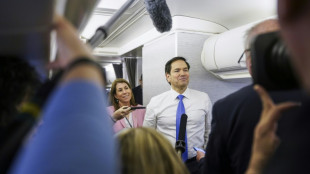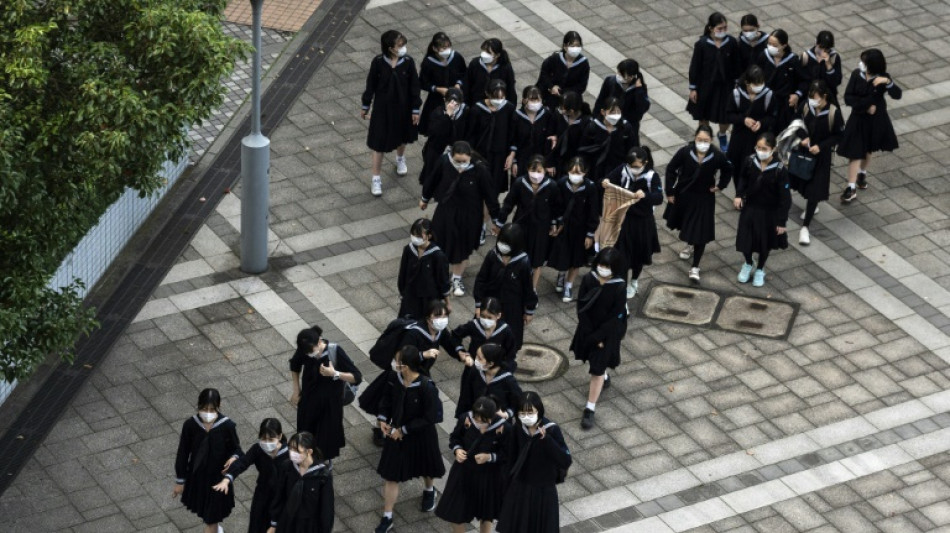
-
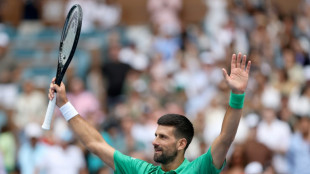 Djokovic oozing confidence ahead of century bid
Djokovic oozing confidence ahead of century bid
-
US regulators to investigate Disney diversity efforts

-
 Elon Musk says xAI startup buying X platform
Elon Musk says xAI startup buying X platform
-
'Jail or death': migrants expelled by Trump fear for their fate
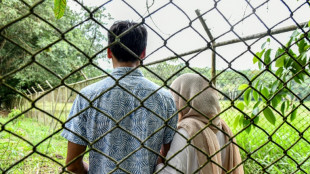
-
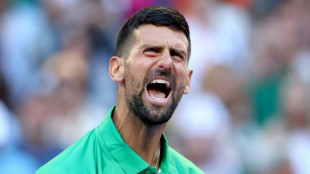 Djokovic closing in on 100th title after Dimitrov downed in Miami
Djokovic closing in on 100th title after Dimitrov downed in Miami
-
Leverkusen beat Bochum to stay hot on Bayern's heels

-
 Global markets slide as fears over US tariffs intensify
Global markets slide as fears over US tariffs intensify
-
Dorival Junior sacked as Brazil coach after Argentina humiliation
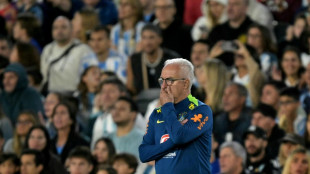
-
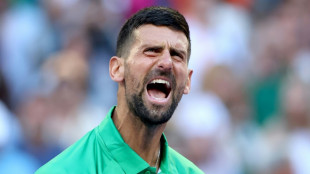 Djokovic cruises past Dimitrov into Miami Open final
Djokovic cruises past Dimitrov into Miami Open final
-
No.1 Scheffler ties Houston Open record with 62 to grab lead

-
 Trump auto tariffs strike at heart of North American trade
Trump auto tariffs strike at heart of North American trade
-
Vance says Denmark has 'under invested' in Greenland
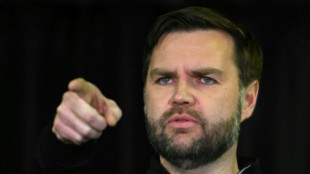
-
 Green light for Winter Olympics bobsleigh slope
Green light for Winter Olympics bobsleigh slope
-
Musk's DOGE team emerges from the shadows

-
 Film stars blast Academy for 'failing to defend' Palestinian filmmaker
Film stars blast Academy for 'failing to defend' Palestinian filmmaker
-
Record fine for UK university renews free speech row
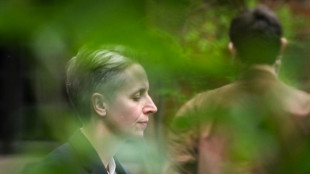
-
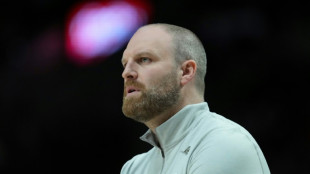 Grizzlies fire head coach Jenkins: team
Grizzlies fire head coach Jenkins: team
-
'Game-changing' Hazlewood shines as Bengaluru thrash Chennai in IPL

-
 Table-topping Bengaluru thrash Chennai by 50 runs in IPL
Table-topping Bengaluru thrash Chennai by 50 runs in IPL
-
Israel warns of attacks 'everywhere' in Lebanon after rocket fire

-
 Utah becomes first US state to ban fluoride in drinking water
Utah becomes first US state to ban fluoride in drinking water
-
Trump prompts US allies to reopen nuclear weapons debate

-
 Nigerian police ban Kano Eid parade as rival emirs dispute throne
Nigerian police ban Kano Eid parade as rival emirs dispute throne
-
Ex-Barcelona star Dani Alves has rape conviction overturned

-
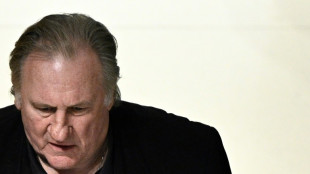 French lawyers condemn 'sexism' of Depardieu's defence in abuse trial
French lawyers condemn 'sexism' of Depardieu's defence in abuse trial
-
Stock markets slide over US inflation, tariff fears

-
 King of cobbles Van der Poel adds Belgium's E3 to Milan-San Remo win
King of cobbles Van der Poel adds Belgium's E3 to Milan-San Remo win
-
Vance lands in Greenland as anger mounts over Trump takeover bid

-
 Teen Brennan wins again, Ayuso retakes lead in Catalonia
Teen Brennan wins again, Ayuso retakes lead in Catalonia
-
Massive quake kills more than 150 in Myanmar, Thailand

-
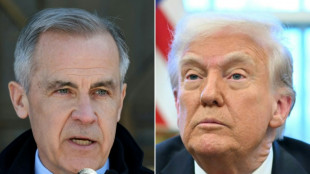 Trump, Canada PM ease tensions with 'productive' call
Trump, Canada PM ease tensions with 'productive' call
-
Italy tries to fill its Albanian migrant centres after legal woes

-
 S.Sudan govt says Vice President Machar 'under house arrest'
S.Sudan govt says Vice President Machar 'under house arrest'
-
Erdogan turns sights on opposition CHP with his main rival in jail
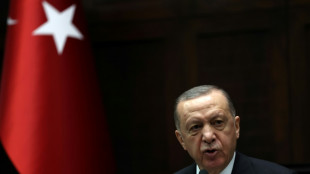
-
 Mateta 'ready' to return for Palace in FA Cup after horror injury
Mateta 'ready' to return for Palace in FA Cup after horror injury
-
US 'in arrears' at the WTO

-
 Massive quake kills nearly 150 in Myanmar, Thailand
Massive quake kills nearly 150 in Myanmar, Thailand
-
Fleeing Trump: four Americans who chose Mexico
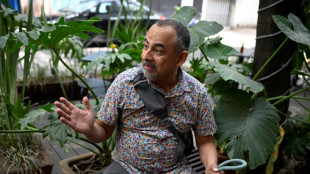
-
 US Fed's preferred inflation gauge shows some cause for concern
US Fed's preferred inflation gauge shows some cause for concern
-
Journalist, protester killed at Nepal pro-monarchy rally
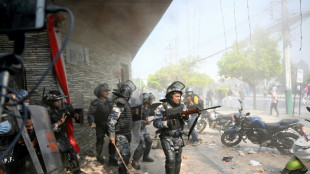
-
 Barca blow as Olmo ruled out for three weeks
Barca blow as Olmo ruled out for three weeks
-
Guardiola seeks redemption as Man City head to Bournemouth in FA Cup

-
 Stock markets fall over US inflation, tariff fears
Stock markets fall over US inflation, tariff fears
-
PSG 'feel like champions' as Ligue 1 title nears, says Luis Enrique

-
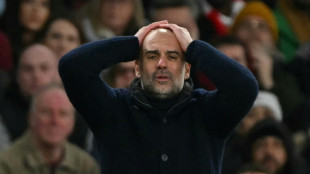 'We don't deserve bonus': Man City boss Guardiola
'We don't deserve bonus': Man City boss Guardiola
-
Cuba resurrects dollar-only stores, a symbol of inequality

-
 Germany says 'nothing off table' in US tariff row
Germany says 'nothing off table' in US tariff row
-
Chinese regulator to vet Panama ports deal: Hong Kong media

-
 Pro-Duterte rallies as ex-Philippine leader marks 80th birthday in jail
Pro-Duterte rallies as ex-Philippine leader marks 80th birthday in jail
-
Israel hits Beirut after rockets fired from south Lebanon


Black hair, white shoelaces: Japan school rules under fire
Every school has its rules, but tough regulations at some Japanese institutions, mandating everything from black hair to white shoelaces, are facing increasing criticism and even legal action.
Toshiyuki Kusumoto, a father of two in western Japan's Oita, is seeking court intervention to protect his younger son from regulations he calls "unreasonable".
They include rules on hair length, a ban on styles including ponytails and braids, prohibition of low-cut socks and a stipulation that shoelaces be white.
"These kinds of school rules go against respect for individual freedom and human rights, which are guaranteed by the constitution," Kusumoto told AFP.
Later this month, he will enter court-mediated arbitration with the school and city, hoping authorities will revise the rules.
Change is already under way in Tokyo, which recently announced that strict rules on issues such as hair colour will be scrapped at public schools in the capital from April.
But elsewhere, the rules are fairly common and Kusumoto, who recalls chafing at similar restrictions as a child, hopes his legal action will bring broader change.
"It's not only about our children. There are many other children across Japan who are suffering because of unreasonable rules," he said.
Such regulations, which generally come into force when children enter middle school at around age 12, emerged after the 1970s, according to Takashi Otsu, an associate professor of education at Mukogawa Women's University.
- Rules 'destroyed a student's life' -
At the time, "violence against teachers became a social problem, with schools trying to control the situation through rules", he told AFP.
"Some kinds of rules are necessary for any organisation, including schools, but decisions on them should be made with transparency and ideally involving students, which would allow children to learn democratic decision-making," he said.
The array of regulations has been defended as helping ensure order and unity in the classroom, but there have been other challenges.
In 2017, an 18-year-old high-school girl who was repeatedly ordered to dye her naturally brown hair black filed a lawsuit in Osaka seeking compensation of 2.2 million yen ($19,130) for psychological suffering.
The case made national headlines and eventually led to the government last year instructing education boards to examine whether school rules reflect "realities around students".
But in a sign of the difficult debate over the subject, both Osaka's district and appeals courts ruled schools could require students to dye their hair black within their discretion for "various educational" purposes.
The student said she was regularly harassed over the issue even though she was colouring her hair to meet the requirements, according to her lawyer.
"This rule destroyed a student's life," he told AFP, speaking on condition of anonymity to protect his client's identity.
The student, now 22, has not given up though, and in November appealed to the supreme court.
- 'Recipe for unthinking children' -
There are other signs of pressure to change the rules, including a petition submitted to the education ministry in January by teen members of rights group Voice Up Japan.
They want the ministry to encourage schools to work with students on discussing rule changes.
"We started this campaign because some of our members have had unpleasant experiences with school rules," said 16-year-old Hatsune Sawada, a member of Voice Up Japan's high-school division.
The petition gives the example of a girl who was humiliated by a teacher for growing a fringe that, when flattened with a hand, covered the girl's eyebrows -- a violation of the rules.
In Oita, the rules also include school uniforms designated by gender, with trousers only for boys and skirts for girls.
The local education board says the rules "not only nurture a sense of unity among children but also ease the economic burden for families of buying clothes".
But Kusumoto disagrees.
"A sense of unity is not something that is imposed, it's something that should be generated spontaneously," he said.
Imposing these kinds of rules "is a recipe for producing children who stop thinking".
P.Santos--AMWN
